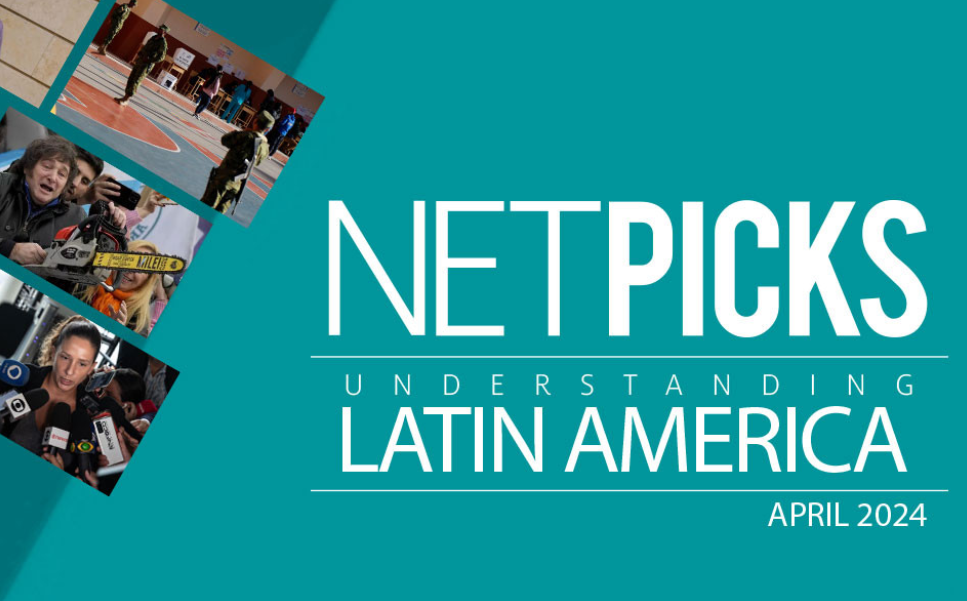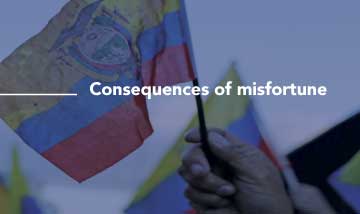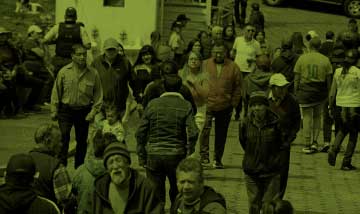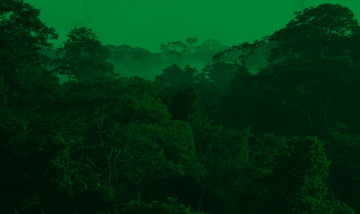Understanding Latin America
Dear readers and colleagues,
This month we bring you our monthly picks as usual, but we start by presenting another exclusive article by the Rosa Luxemburg Foundation’s Andean Regional Office. This special report takes an in depth look at the referendum facing Ecuadorians in April, when citizens will vote on 11 questions about tightening security measures and important constitutional reforms. What are the implications for Ecuador’s future if citizens vote “yes”? Here we tell you.
The other four articles we recommend this month are from Brazil, Argentina, Venezuela and Honduras.
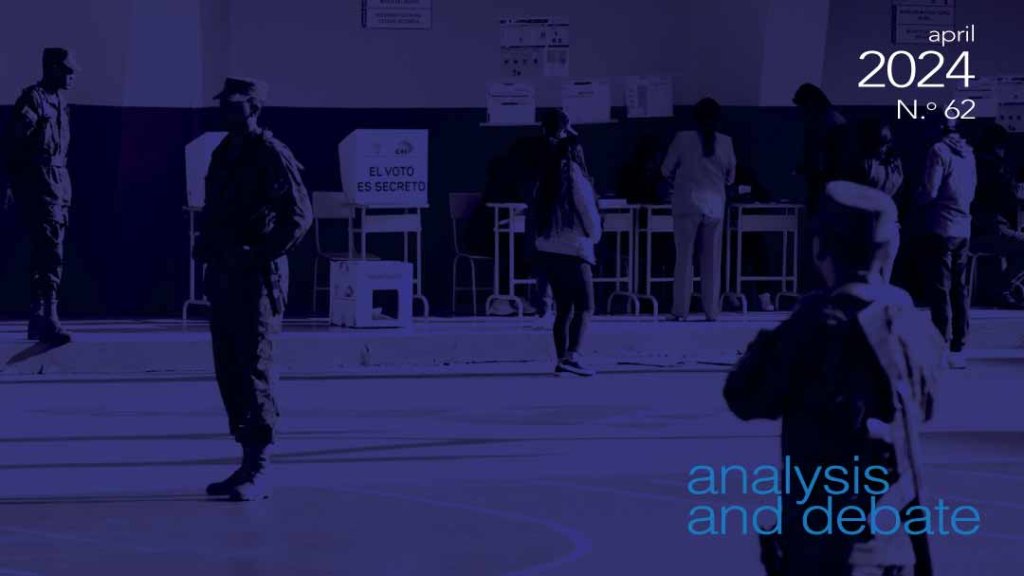
.
SECURITY AS A POLITICAL FIELD: HOW TO TAKE A STAND AGAINST THE APRIL REFERENDUM
Ecuadorians will return to the polls this month to vote on 11 referendum and constitutional amendment questions. Of these, eight are related to security issues, three of which deserve much more attention and scrutiny as they could drastically change Ecuador’s future, leaving it open to permanent militarization and paramilitarism, says the author. The first question seeks to give constitutional validation to military presence in policing tasks, which has been proposed by previous presidents and struck down by the Constitutional Court. If approved this time, the militarization of public security will have constitutional protection. The second amendment has to do with the extradition of Ecuadorians found guilty of drug trafficking, which Washington has long been promoting in its 50 years “war on drugs.” The third, and most troubling, asks citizens whether they agree that weapons that were instruments and material objects of a crime can be used by the National Police or Armed Forces. This reform reduces the possibility of being able to identify who is committing murders: whether an agent of the State or a common criminal. This means that a new outlook of political-criminal violence is on the horizon: one of paramilitarism. No one seems to be disputing the war scenario created by President Daniel Noboa, says the author. A “yes” vote to any of these questions could be dangerous for Ecuador’s future in various ways.
Luis C. Córdova, April 4
https://www.rosalux.org.ec/en/ecuador-security-as-a-political-field/
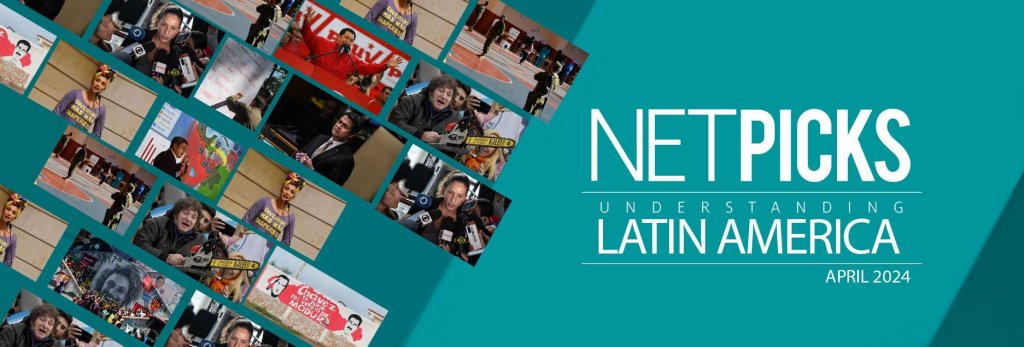
- Security as a political field: how to take a stand against the April referendum
- Marielle Franco: two politicians and ex-police chief arrested over Brazil murder
- The Argentinian Chainsaw Massacre
- Is Hugo Chávez to Blame for Venezuela’s Collapse?
- Honduras Ratchets Up Battle With Crypto-Libertarian Investors, Rejects World Bank Court
MARIELLE FRANCO: TWO POLITICIANS AND EX-POLICE CHIEF ARRESTED OVER BRAZIL MURDER
Two powerful politicians and Rio de Janeiro’s former chief of police have been arrested for the 2018 assassination of Rio councilor and activist Marielle Franco. Many of her supporters and colleagues praised the arrests, calling them a very important step to understanding her murder. Franco was a well-known black, gay, favela-born activist, defender of Brazil’s minorities and an outspoken campaigner against police violence. The assassination of her and her driver, Anderson Gomes, in 2018 caused massive national and international outcry. Though the man who pulled the trigger had been caught, authorities failed for nearly six years to identify the intellectual architects who ordered the killings. The question, “Quem mandou matar Marielle?” (“Who ordered Marielle’s murder?”) had become a common rallying cry by the Brazilian left at protests and on social media. The 2022 election of president Luiz Inánio Lula da Silva breathed new life into the apparently stalled quest to find Franco’s killers, after Lula vowed to bring the masterminds to justice and, in a highly symbolic move, made Franco’s younger sister his minister for racial equality. Franco’s family and supporters were shocked to learn that Rio’s top cop was involved in her murder, as the man claimed to be working tirelessly to solve the crime. How did officials find the masterminds?
Tom Phillips, March 24
https://www.theguardian.com/world/2024/mar/24/marielle-franco-two-powerful-politicians-arrested-over-brazil
.
THE ARGENTINE CHAINSAW MASSACRE
In March, president Javier Milei said Argentina has the opportunity to reach Germany’s economic strength and prosperity — Parliament and the courts just needed to accept his proposals. But during his first 100 days in office, the self-described “chainsaw man” has already implemented several measures to worsen the country’s economy and cause growing despair across the country. His shock policies have hit the lower classes particularly hard, but have also affected the middle class. Milei blames this development on his predecessor, the unsuccessful Peronist Alberto Fernandéz, but Milei himself has severely aggravated the crisis by: devaluing the country’s currency immediately after taking office; removing price controls on food staples and scrapping subsidies, which led to the explosion of transportation, gas, electricity and water costs; and cutting aid for NGO-run soup kitchens for those with the greatest needs. Many observers are comparing Argentina’s current crisis with the one in the late-90s, but there are noteworthy differences. In the ‘90s, for example, trade unions were unable to mount much resistance to the neoliberal agenda, but today’s Argentina is marked by strikes and protests on almost a daily basis. Also, Milei is far from being able to simply push through his agenda, as he does not have the majority in either chamber of parliament. It remains questionable whether he will actually be able to push through his project of restructuring the state.
Torge Löding, March 21
https://www.rosalux.de/en/news/id/51795/the-argentinian-chainsaw-massacre
.
IS HUGO CHAVEZ TO BLAME FOR VENEZUELA’S COLLAPSE?
Hugo Chávez died eleven years ago, and it’s no secret that Venezuela today is a very different country from how he left it. But, the author asks, to what degree should Chávez be held responsible for the crisis that has engulfed Venezuela since his death? How should we assess Chávez’s legacy in light of the crisis? There are two theses that have developed to explain the current state of Venezuela. One blames Chávez for nearly everything that has transpired since his death, saying he was an incompetent authoritarian who destroyed Venezuela’s economy and eroded democracy. The other holds that Chávez bears little to no responsibility for the country’s descent, as the crisis was created by US imperialism. If anything, say some of these believers, Maduro could be to blame for misguided and autocratic policies. Neither of these arguments fully captures the reality of the Chávez and post-Chávez eras, although the second is a bit closer to the mark, says the author. He outlines Chávez’ numerous achievements while in office, like massive social gains and reinvigorating Venezuela’s participatory democracy. But he also points out some of the contradictions of Chávez’ time in office, like skyrocketing corruption and deepening the relationship between the military and the state. As Venezuelans get ready to head to the polls on July 28, these questions may be lingering in many peoples’ minds.
Gabriel Hetland, March 5, 2024
https://nacla.org/is-hugo-chavez-to-blame-for-venezuelas-collapse
.
IS HUGO CHAVEZ TO BLAME FOR VENEZUELA’S COLLAPSE?
Hugo Chávez died eleven years ago, and it’s no secret that Venezuela today is a very different country from how he left it. But, the author asks, to what degree should Chávez be held responsible for the crisis that has engulfed Venezuela since his death? How should we assess Chávez’s legacy in light of the crisis? There are two theses that have developed to explain the current state of Venezuela. One blames Chávez for nearly everything that has transpired since his death, saying he was an incompetent authoritarian who destroyed Venezuela’s economy and eroded democracy. The other holds that Chávez bears little to no responsibility for the country’s descent, as the crisis was created by US imperialism. If anything, say some of these believers, Maduro could be to blame for misguided and autocratic policies. Neither of these arguments fully captures the reality of the Chávez and post-Chávez eras, although the second is a bit closer to the mark, says the author. He outlines Chávez’ numerous achievements while in office, like massive social gains and reinvigorating Venezuela’s participatory democracy. But he also points out some of the contradictions of Chávez’ time in office, like skyrocketing corruption and deepening the relationship between the military and the state. As Venezuelans get ready to head to the polls on July 28, these questions may be lingering in many peoples’ minds.
Gabriel Hetland, March 5, 2024
https://nacla.org/is-hugo-chavez-to-blame-for-venezuelas-collapse
.
HONDURAS RATCHES UP BATTLE WITH CRYPTO-LIBERTARIAN INVESTOR, REJECTS WORLD BANK COURT
Honduran President Xiomara Castro is pushing back against American crypto investors attempting to seize billions in public money from the Central American nation. The crypto crew is exploiting a dispute mechanism nested inside the World Bank, created by an obscure provision of the Central America Free Trade Agreement, called the International Centre for Settlement of Investment Disputes, or ICSID. But Castro has deemed the ICSID to be an illegitimate usurpation of Honduran sovereignty and taken steps to withdraw the country from it. The crypto crowd is crying foul, while a group of prominent international economists is applauding the move. At issue are so-called ZEDEs – short for Zone for Employment and Economic Development – created by previous governments of Honduras. The law that established ZEDEs effectively carved out portions of Honduras and turned them over to American investors, who operate as effective sovereign governments. The United Nations has said the zones raise human rights concerns, as they could one day control 35 percent of Honduras’ territory. The battle between Honduras and the global financial institutions blends the 19th century U.S. legacy of gunboat diplomacy and banana republicanism but with a contemporary twist, the investors are made up of a band of crypto-libertarians, writes the author.
Ryan Grim, March 19, 2024
https://theintercept.com/2024/03/19/honduras-crypto-investors-world-bank-prospera/

